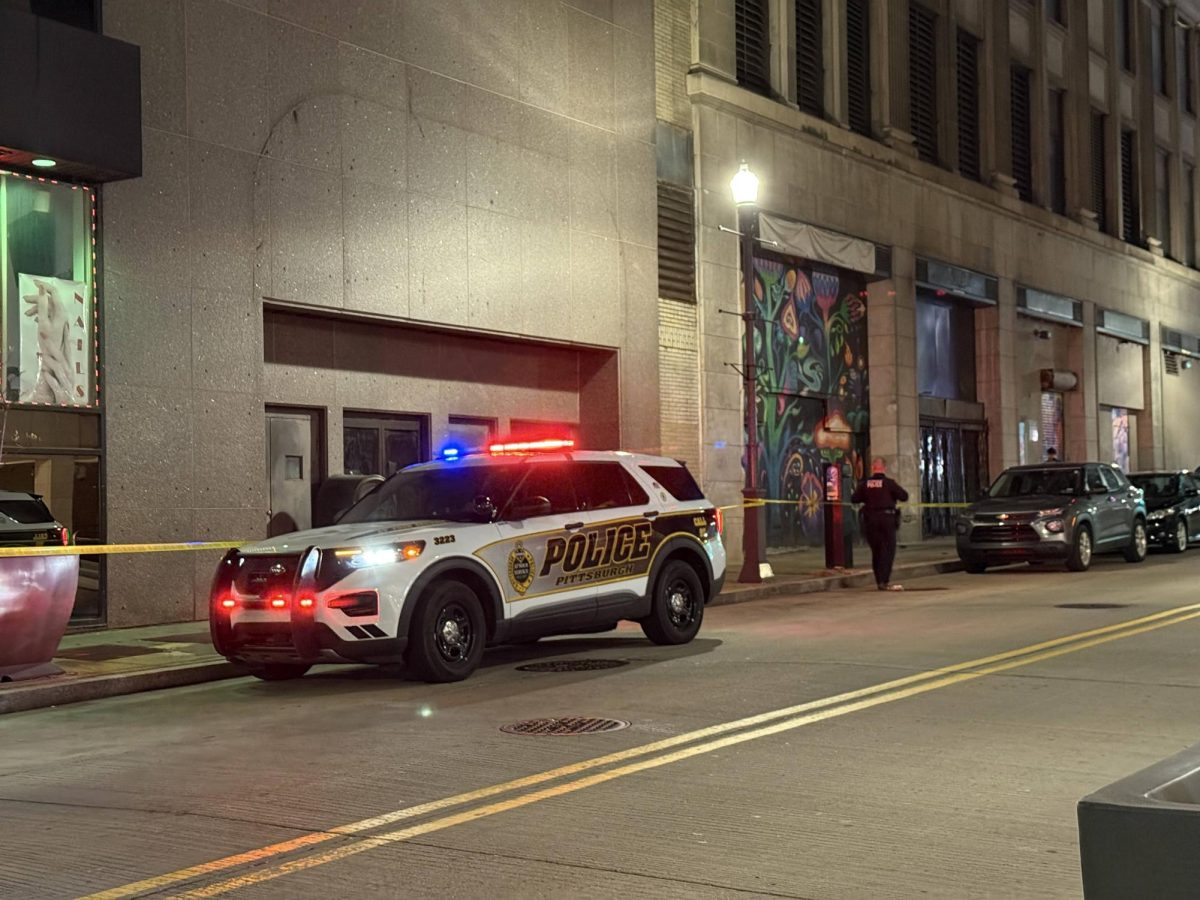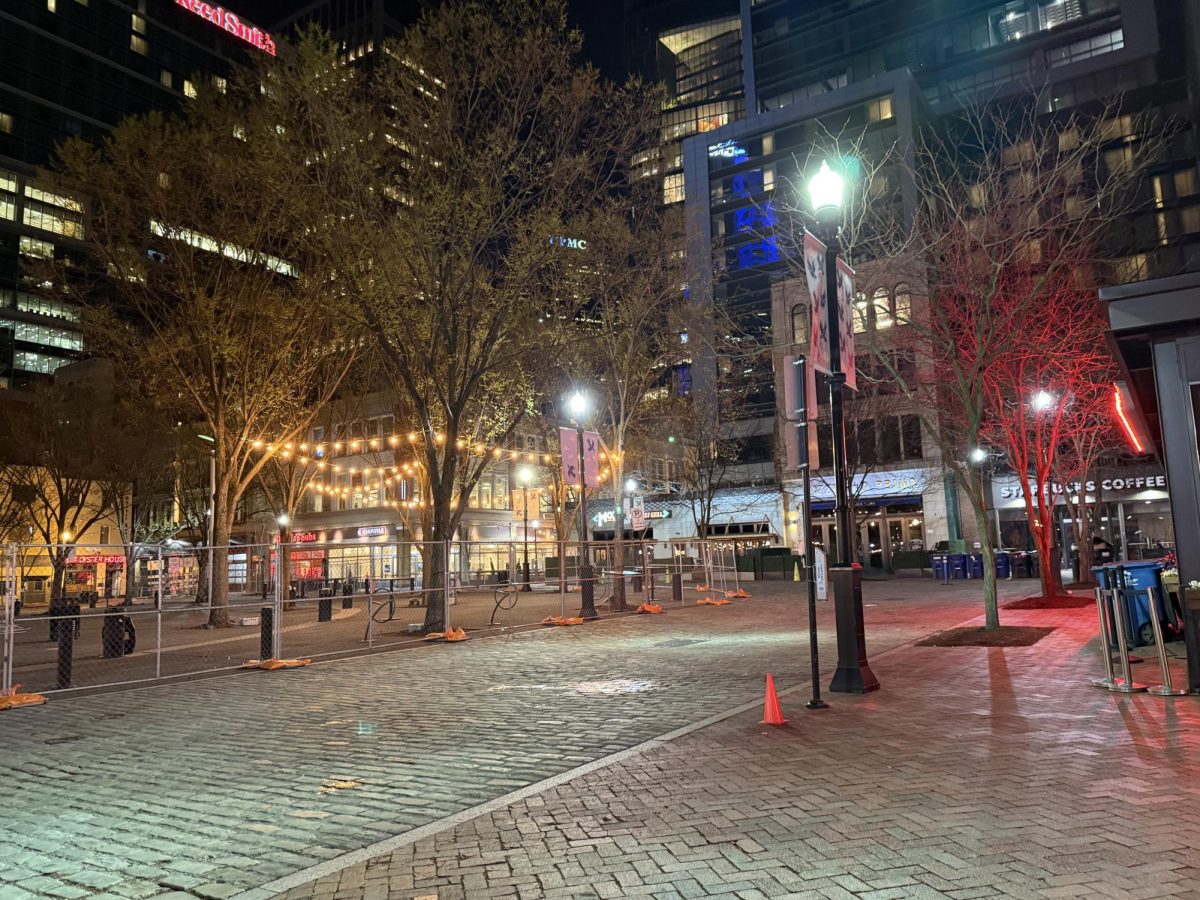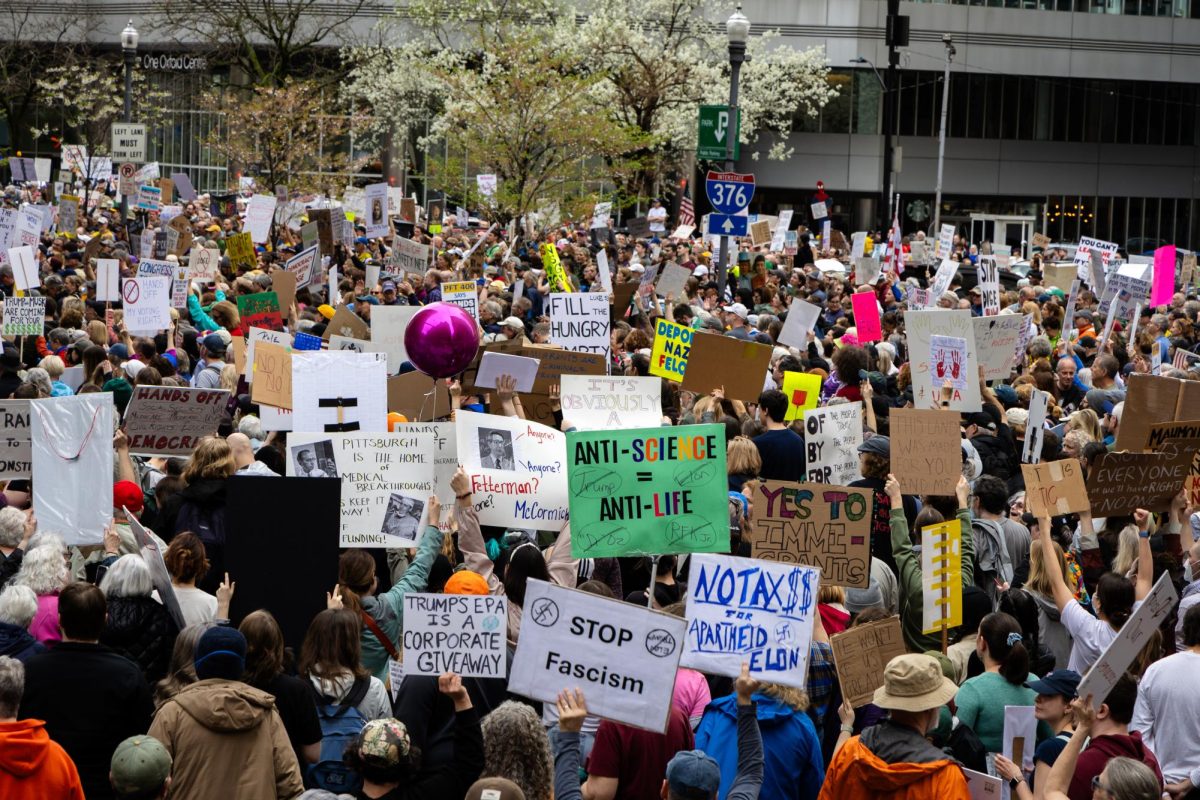
photo by Eddie Trizzino
Dean of Students Keith Paylo speaks about the importance of Martin Luther King Jr. Day on Jan. 19 during a luncheon celebrating the life of the Civil Rights activist.
This year marks the 50th anniversary of the Selma marches led by Dr. Martin Luther King Jr. On Monday, King and his lessons about civil disobedience were honored at the second annual Martin Luther King Jr. Day Leadership Luncheon in the Lawrence Hall ballroom.
“We want to make sure we support Martin Luther King Jr. Day, what he stood for, and what he meant to the civil rights movement,” Brad Kovalcik, coordinator of Student Activities, Involvement and Leadership (SAIL), said in an interview before the luncheon.
The luncheon, which was an invitation only event, invited faculty members as well as student leaders from clubs and sports teams to participate in open discussions over lunch about topics relating to civil disobedience and racial equality in modern society.
“In today’s society, we see many issues at hand but [they are] not talked about, so we wanted to get students talking,” Kovalcik said. “It’s important that the message of civil disobedience doesn’t get lost, because it’s a strong way to send a message without putting people in danger, and we still see it today as a result.”
Kovalcik also said he considers last year’s luncheon a success, which had about 70-80 attendees. He hopes to invite more students to the future luncheons and also that it continues to inspire meaningful conversation.
Last year, the luncheon was followed by a screening of King’s speech “Beyond Vietnam,” but no plans were made for that this year.
The event started this year with a speech from Keith Paylo, Dean of Students and Vice President of Student Affairs.
“We’re here to talk about a very important subject that we want to bring to the forefront,” Paylo said in his opening speech. “We’re talking about Selma and the march to Montgomery.”
After Paylo’s speech, a historical video was shown, highlighting some intense moments from the civil rights movement and a few of King’s speeches.
After the video, a slideshow put together by Ken Middlemiss, assistant coordinator of SAIL, was shown also highlighting moments and facts from the civil rights movement.
“It was powerful, and most people know about it, but to see it in on film and to hear the cries is very different,” said United Student Government (USG) President Julian Singleton.
After the video, conversations were held at several tables about the images seen on the screen. Lunch was then served in the midst of conversation.
Each table was also set with topic papers asking questions about the role of civil disobedience in modern society. Conversation consisted of the opinions, personal experiences and inner-thoughts of each table’s diners.
“A lot of people do see the end result, but not how we get there,” Singleton said about his table’s conversations on racial equality.
Singleton also said USG will be hosting a discussion event in mid-February centered around civic responsibility and engagement with more information to come.
“We were asked if we’d still march after seeing all the brutality, and most people including myself said yes, which surprised me,” said freshman business management major and accounting minor Amber Mole, who is also treasurer for the Black Student Union. “When it’s personal like that, you have more reason to do that.”
“It was very thought-provoking and empowering,” Shayna Mendez, a junior photojournalism major said about her table’s discussion. Mendez is an international student from Jamaica and said although King is not a large figure in her home country, the words he said resonate with her.
Discussion continued at each table until Paylo said his closing words as the diners began to disperse.
“It was really nice seeing the different perspectives of everybody,” Mole said. “I’m really excited to see what happens next year.”







